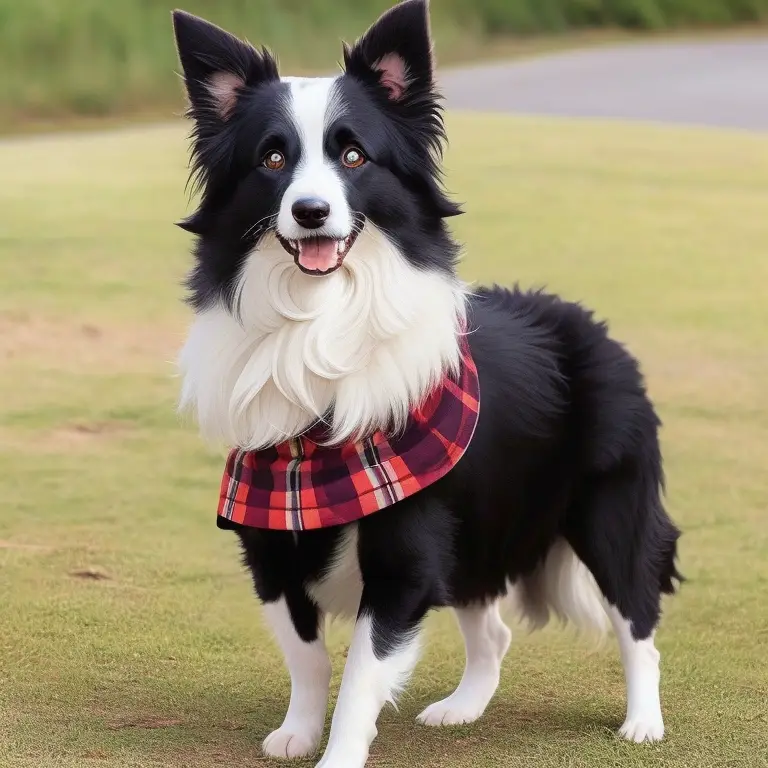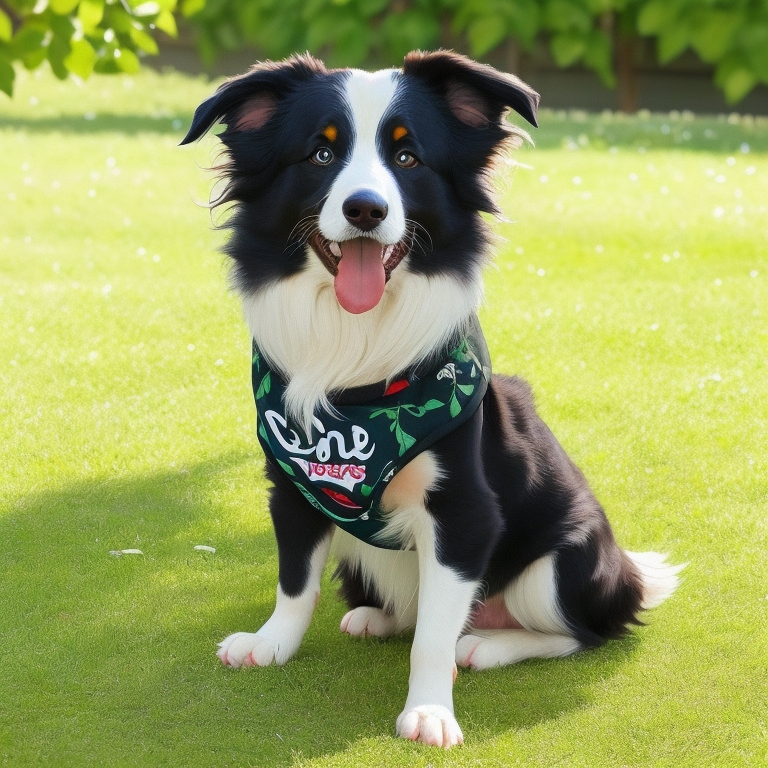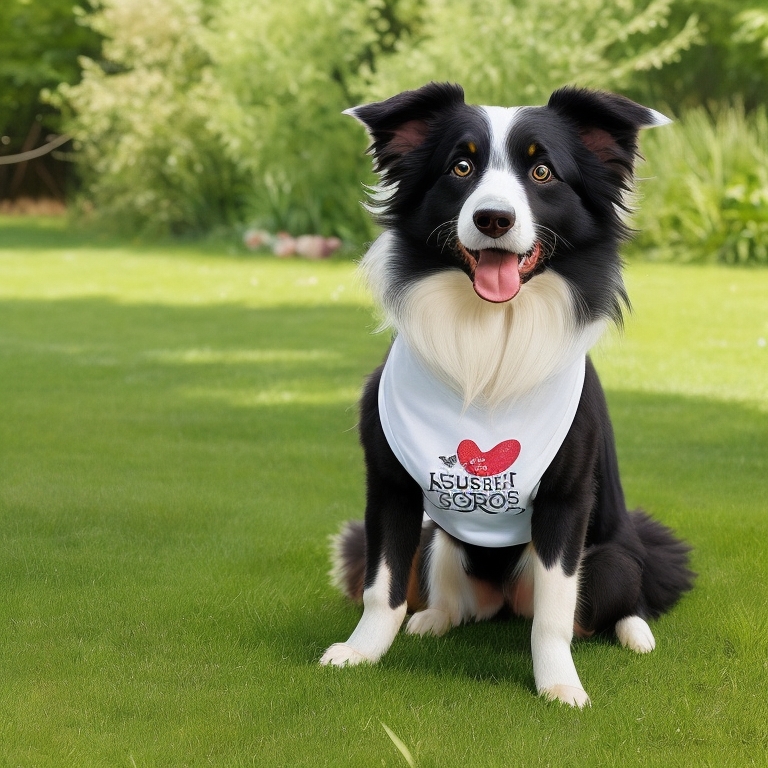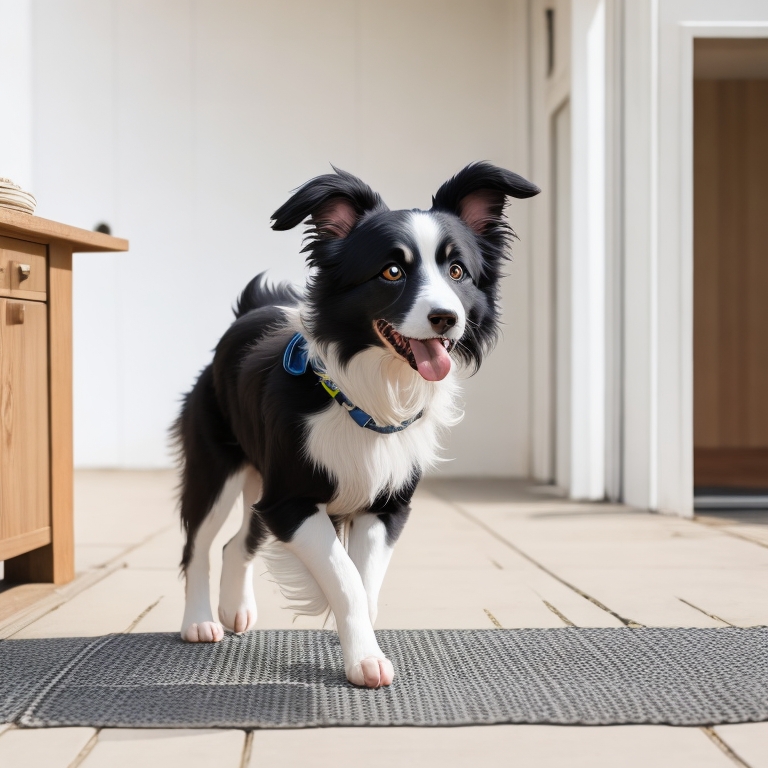What Should I Feed My Border Collie?
Hey there, fellow dog lover! If you’re reading this, chances are you’re a proud owner of a Border Collie, or you’re simply considering getting one. And one of the most important aspects of being a responsible pet parent is ensuring that your furry friend gets a well-balanced and nutritious diet.
But what exactly should you feed your Border Collie?
With so many dog food options on the market, it can be overwhelming to choose the right one. In this article, we’ll cover the basics of Border Collie nutrition, the factors to consider when choosing dog food, feeding options, and tips on maintaining good eating habits for your pup.
So, let’s dive in and find out what your Border Collie should be eating to live their happiest and healthiest life!
| Food Type | Pros | Cons |
|---|---|---|
| Dry Kibble | Convenient and easy to store, helps maintain dental health | May contain fillers and preservatives, may not provide sufficient moisture |
| Wet Food | Provides more moisture, may be easier for some dogs to digest | Shorter shelf life, may contribute to dental problems in some dogs |
| Raw or Homemade Diet | May be more palatable, allows greater control over ingredients | Requires significant time and effort to properly prepare, may be nutritionally imbalanced if not carefully planned |
| Combination Diet | Provides the benefits of both dry and wet food, can be customized to suit specific needs | May be more expensive and time-consuming to prepare, requires careful balancing of proportions |
Understanding Border Collie’s Nutritional Needs
The Basics of Border Collie Diet
Feeding your Border Collie is a crucial aspect of maintaining their overall wellbeing. The basics of a healthy Border Collie diet involve providing a balance of proteins, carbohydrates, vitamins, and fats.
When selecting dog food, prioritize high-quality, well-balanced options that cater to the specific nutritional needs of this breed.
Border Collies are highly energetic dogs, making it necessary to feed them the right amount of calories to support their level of activity. To maintain a healthy weight and energy level, feed your Border Collie twice a day instead of a single large meal.
Hydration is another essential aspect of a healthy Border Collie diet.
Ensure your pet has access to clean, fresh water at all times and encourage regular water consumption throughout the day. It’s important to avoid feeding your Border Collie certain foods, including chocolate, caffeine, and citrus fruits, as these can be harmful to their health.
Additionally, avoid overfeeding your dog with table scraps and human food, which can cause digestive issues and lead to weight gain.
By providing a well-balanced diet, monitoring portion control, and staying aware of any harmful foods, you’ll be able to ensure your Border Collie’s nutritional needs are met, and they stay healthy and happy.

Factors to Consider When Choosing Dog Food for Border Collies
When it comes to choosing dog food for your Border Collie, there are several factors to consider. One of the most important is the age of your dog.
Puppies have different nutritional needs than adult dogs, and senior dogs have different needs than both.
It’s important to choose a food that is appropriate for your dog’s age. Another important factor is your dog’s activity level.
Border Collies are a highly active breed, and they need a food that provides enough energy to support their active lifestyle.
Look for a food that is high in protein and fat. The ingredients of the food are also important.
Choose a food that has high-quality ingredients, such as real meat, whole grains, and vegetables.
Avoid foods that contain fillers, artificial flavors, and preservatives. It’s also important to consider any health issues or allergies your dog may have.
If your dog has a specific health condition, such as renal disease or food allergies, you may need to choose a special diet that meets their specific nutritional needs.
Finally, the price of the food is also a factor to consider. While high-quality dog food can be expensive, it’s worth the investment in your dog’s health and well-being.
By considering these factors when choosing a dog food for your Border Collie, you can help ensure that they receive the proper nutrition to stay healthy and active.
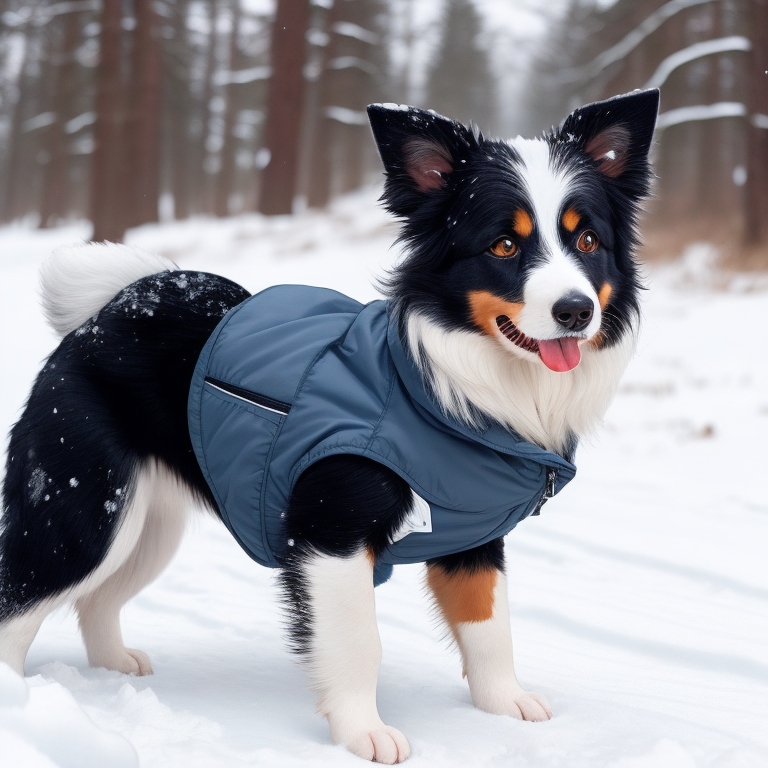
Nutrients Required by Border Collies
When it comes to the nutritional needs for Border Collies, there are a few key nutrients that are essential for their health and well-being. These include:
- Protein: Border Collies are active dogs that require a lot of protein to maintain their energy levels and build and repair their muscles.
- Fat: Fat is a crucial source of energy for Border Collies, and it also helps with the absorption of certain vitamins.
- Carbohydrates: Although Border Collies don’t need a lot of carbohydrates, they do require some for energy and to help with digestion.
- Vitamins and minerals: Border Collies need a range of vitamins and minerals, including vitamins A, D, E, K, B1, B2, B6, and B12, as well as calcium, phosphorus, and iron.
- Water: Water is essential for all dogs, including Border Collies, to keep them hydrated and help regulate their body temperature.
When choosing a food for your Border Collie, make sure that it contains all of these essential nutrients in the right proportions. Additionally, speak with your veterinarian to determine the appropriate amount of food and frequency of feeding for your dog based on their age, weight, and activity level.
Feeding Options for Border Collies
Commercial Dog Food
Commercial dog food is a convenient and widely available option for feeding your Border Collie. It comes in different forms, including kibble, wet, and semi-moist food.
When selecting commercial dog food, you should opt for a formula that is specifically designed for Border Collies or medium-sized dogs.
Some commercial dog food products contain fillers, artificial colors, and preservatives that may be harmful to your Border Collie’s health. Therefore, it is important to read the label carefully and ensure that the product contains the right balance of nutrients your dog needs.
Look for dog food that includes high-quality animal protein sources, such as chicken, fish, and lamb.
Avoid dog food that contains excessive amounts of carbohydrates, such as corn, soy, and wheat. These ingredients can cause digestive problems, allergies and can lead to your Border Collie becoming overweight.
It is also important to consider the age, activity level, and health condition of your Border Collie when selecting commercial dog food.
Overall, commercial dog food can provide a convenient and balanced diet for Border Collies. However, it is essential to read the ingredients list and choose a meal that provides the best nutrition for your dog.
Raw Food Diet
Raw food diet, also known as BARF (Biologically Appropriate Raw Food), aims to replicate a dog’s ancestral diet in the wild. It consists of raw meat, bones, and organs, along with vegetables and fruits.
Many owners opt for this diet for their Border Collies due to its potential health benefits, such as improved coat and skin health, better digestion, and increased energy levels.
However, it is essential to ensure proper food handling and hygiene when feeding raw to avoid the risk of bacterial contamination. Also, a raw food diet may not be suitable for all Border Collies, especially those with medical conditions.
If considering a raw food diet, consult with a veterinarian and a pet nutritionist to formulate a balanced and complete diet that meets your Border Collie’s nutritional needs.
Overall, a raw food diet can be a viable option for some Border Collies, but it requires careful consideration and planning to ensure safe and healthy consumption.

Homemade Dog Food
Homemade dog food provides an excellent alternative to commercial dog food. You know the ingredients and can be confident that your Border Collie is receiving the best nutrition possible.
With homemade dog food, you have control over the quality of ingredients and can avoid additives that are not beneficial to your dog’s health.
However, it is essential to ensure that the meals you prepare meet your Border Collie’s nutritional needs. Consult with a veterinarian and learn about the essential nutrients required by your dog.
Tips for Feeding Your Border Collie
Portion Control
When it comes to feeding your Border Collie, portion control is essential to maintaining a healthy weight. Overfeeding can lead to obesity, which in turn can cause several health problems.
On the other hand, underfeeding can result in malnutrition and other health issues.
To determine the appropriate portion size for your Border Collie, consider factors such as their age, weight, activity level, and overall health. Typically, adult Border Collies need about 1-2 cups of dry dog food per day, while puppies require more frequent meals throughout the day.
It’s also important to follow the feeding instructions on the dog food package and measure out the appropriate amount of food.
Avoid free-feeding your Border Collie, which can lead to overeating. If you notice your Border Collie gaining weight, reduce the portion size and increase their exercise level.
Likewise, if you notice a drop in their weight, consider adding more food or making dietary adjustments.
In summary, portion control is crucial to maintaining a healthy weight and overall health for your Border Collie. Monitor their weight and adjust portion sizes as needed, and follow the feeding instructions on the dog food package.
Meal Frequency
When it comes to feeding your Border Collie, it’s crucial to get the meal frequency right. As a general rule, adult Border Collies should be fed twice a day – once in the morning and again in the evening.
By feeding your dog smaller, more frequent meals, you can help to reduce the risk of gastric torsion, a condition that can cause stomach bloating and other serious health concerns.
Puppies, on the other hand, may need to be fed more frequently to support their rapid growth and development. Most veterinarians recommend feeding puppies three to four small meals a day.
However, you should always check with your vet for specific recommendations based on your puppy’s individual needs.
It’s also important to remember that meal frequency may need to be adjusted based on your Border Collie’s activity level, health status, and age. If you’re ever unsure about how often to feed your dog, speak to your veterinarian for guidance.
Hydrating Your Border Collie
Hydrating Your Border Collie: Water is vital for your Border Collie’s health. A dog’s body is made up of 60% water, and the easiest way to hydrate your dog is by providing clean and freshwater at all times.
Make sure the water bowl is frequently cleaned and filled with fresh water, especially during the warmer months.
Here are some tips to ensure your Border Collie is well hydrated:
- Keep the water bowl filled- Ensure that you have enough water for your dog at all times, and the bowl is easily accessible.
- Clean the bowl- Clean the water bowl frequently to avoid bacteria or disease from harming your dog.
- Monitor their intake- Observe the amount of water your dog is consuming to ensure that they are taking enough water.
- Encourage water consumption- Border Collies may not always be thirsty, but you can encourage them to drink water by adding ice or flavoring to the water.
Remember, dehydration can cause adverse health issues and can lead to organ failure. Ensure your Border Collie has access to water to maintain a healthy life.

Avoiding Harmful Foods
When it comes to feeding your Border Collie, it’s crucial to avoid certain harmful foods. Here are some foods to steer clear of:
- Chocolate: Chocolate contains caffeine and theobromine, which are harmful to dogs and can cause vomiting, diarrhea, and heart problems.
- Grapes and raisins: These fruits can cause kidney failure in dogs, so it’s best to avoid them altogether.
- Onions and garlic: These can cause anemia in dogs, which can lead to weakness, vomiting, and breathing difficulties.
- Avocado: Avocado contains persin, which can cause vomiting and diarrhea in dogs.
- Alcohol: Even small amounts of alcohol can be toxic to dogs and cause vomiting, diarrhea, breathing difficulties, and even death.
By avoiding these harmful foods, you can ensure that your Border Collie stays healthy and happy. Always take the time to read ingredient labels on any dog food or treats before feeding them to your furry friend.
Maintaining Good Eating Habits for Your Border Collie
Exercises and Playtime
Exercises and Playtime are essential in maintaining good eating habits for your Border Collie. These dogs are highly active and require daily exercise to burn calories and maintain a healthy weight.
Without adequate exercise, they can easily become overweight or obese, which could lead to health problems.
Border Collies thrive when they are mentally and physically stimulated through activities such as fetch, hiking, running, or agility training. As a pet owner, you should prioritize spending quality time playing with your Border Collie, which not only helps them maintain a healthy weight but also strengthens the bond between you and your furry friend.
When exercising your Border Collie, be careful not to overdo it.
Gradually build up to more intense and longer activities to prevent injury and strain on their muscles. It’s crucial to provide enough rest in between exercises to help your Border Collie recover and recharge.
Exercising and playing with your Border Collie is a critical aspect of maintaining good eating habits.
By providing enough physical and mental stimulation, you’re keeping your furry friend happy, healthy, and engaged. So, make sure to spend quality time with your Border Collie every day to keep them active and healthy.

Monitoring Your Border Collie’s Weight
Your Border Collie’s weight is an important indicator of their overall health and well-being. Regularly monitoring their weight is crucial to ensure that they are neither underweight nor overweight.
Here are some tips on how to monitor your Border Collie’s weight:
- Use a digital scale – Use a digital scale to weigh your Border Collie. It’s essential to weigh them once a week and keep track of their weight over time.
- Observe their body condition – You can also determine your Border Collie’s weight by observing their body condition. You should be able to feel their ribs easily without seeing them, and they should have a defined waist.
- Consult your vet – It’s always a good idea to consult your vet for a professional opinion. Ask your vet to give you the ideal weight range for your pet, and they can also recommend a dietary plan tailored to your Border Collie’s needs.
Regular exercise and playtime also play a significant role in maintaining your Border Collie’s weight and keeping them healthy overall. If you notice any sudden changes in your Border Collie’s weight, or if you have any concerns, consult your vet immediately.
By monitoring your Border Collie’s weight regularly, you can keep them healthy, happy, and active for years to come.
Visiting the Vet
Maintaining a healthy diet and good eating habits for your Border Collie is crucial for their overall health and well-being. Part of ensuring their health involves visiting the vet regularly.
Regular vet visits can detect any potential health issues your dog might be facing and address them before they escalate into more serious problems.
During your visit, the vet may ask about your dog’s eating habits and provide recommendations if necessary. Don’t hesitate to ask any questions or concerns about your dog’s diet and overall health.
A vet can provide invaluable advice on how to best care for your Border Collie and maintain a healthy weight.
Remember, prevention is always better than cure, so always keep up with the recommended visits to the vet to ensure that your beloved Border Collie is in good health.
Conclusion
Feeding your Border Collie a nutritious and balanced diet is essential to maintaining their overall health and well-being. Consider factors such as age, activity level, and dietary restrictions when choosing the right food for your furry friend.
While commercial dog food, raw food diets, and homemade dog food are all viable options, always ensure your Border Collie’s specific nutritional requirements are met.
Additionally, practicing portion control, providing frequent meals, keeping your Collie hydrated, and avoiding harmful foods are all excellent tips to maintain good eating habits. Remember to monitor your Collie’s weight and visit the vet regularly to keep them healthy and happy.
Holistic nutrition and a healthy diet are the first steps toward a long and happy life for your beloved Border Collie.

